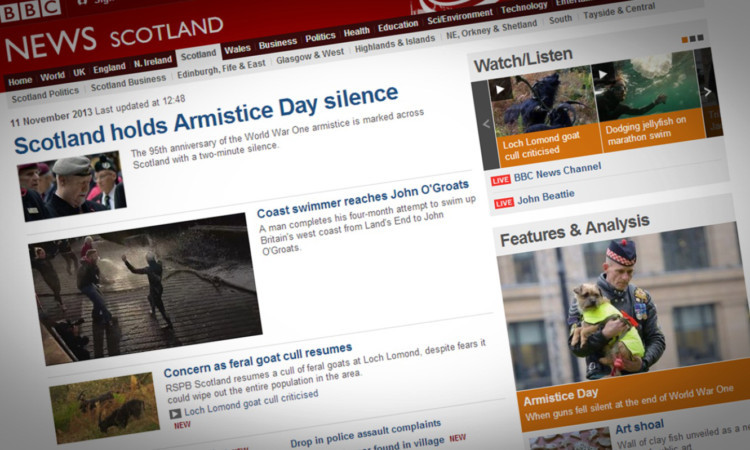The BBC’s dominant position on the internet is destroying local newspapers and threatens national publications, the Home Secretary has warned.
Addressing the Society of Editors’ annual conference in London, Theresa May attacked the broadcaster’s ability to subsidise its online coverage with the licence fee.
And Mrs May warned the “might of the BBC” could ultimately impact on “local democracy”.
The Home Secretary said local newspapers are having “a particularly hard time”.
She went on: “That’s partly been the result of the BBC’s dominant position on the internet and its ability to subsidise the provision of internet news using the licence fee.
“This makes it enormously difficult for local newspapers to compete. If the BBC can, as they do, provide all the locally significant news, what reason is left for local people to buy a newspaper?
“It’s destroying local newspapers and could eventually happen to national newspapers as well.”
Mrs May said she had held discussions with her local newspaper the Maidenhead Advertiser about the impact of the BBC locally and the importance of having an “alternative local news source”.
“This is as dangerous for local politics as it is for local journalism,” the Home Secretary said. “Because as a local MP I value the ability to raise issues in my constituency in my local newspaper but also I value its role in disseminating information about what I and local councillors are doing in the area.”
She added: “This is a debate that won’t go away and I believe the BBC has to think carefully about its presence locally and the impact it has on local democracy.”
Mrs May said she believed “a plurality of news sources is essential to our democracy”. She warned if newspapers are forced to close down, the country could be left with a single source of information.
The Home Secretary said: “At a national level, we have a healthy number of competing newspapers in Britain and that’s something we surely don’t want to lose.”
Mrs May went on: “A monopoly on the provision of information would be a perennial temptation to malpractice, inefficiency and corruption in exactly the same way almost every other kind of monopoly is.
“No single source of news can possibly represent the variety of opinion that there is in this country and a monopoly news provider would be far too easily captured by special interests.
“So competition in the provision of news is essential to democracy and diminishing competition is dangerous to the health of democratic politics.
“That’s why it’s important that the internet does not have the effect of making a plurality of newspapers commercially impossible in Britain.”
Mrs May is the second senior Tory in as many weeks to draw attention to BBC’s role in the political process after party chairman Grant Shapps accused the corporation of biased reporting and questioned its funding.
Mr Shapps claimed there was a “question of credibility” for the BBC over whether it applied “fairness” to its reporting of politics.
With the BBC’s royal charter coming up for renewal in 2016, he also suggested that there were “lots of different ways” in which licence fee-payers’ money could be used to fund public service broadcasting and said that the £145.50 annual fee would be “too much” if it failed to reform.
Mr Shapps’s comments were later criticised by the Deputy Prime Minister and LibDem party leader Nick Clegg who said it was unhealthy for political parties to question the corporation’s impartiality and attacked the Tories for popping up “like clockwork” to “browbeat” it in the run up to an election.
